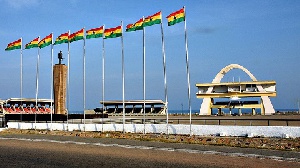On the 6th of March, 2018, Ghana celebrated sixty-one years of the end of British rule on our soil and commemorated the occasion with colourful parades and activities. The month of March has been dubbed “Ghana Month” and Ghanaians are being encouraged to” Eat Ghana, Wear Ghana, Know Ghana, Watch Ghana” and in fact indulge in anything Ghana to bring our Ghanaian identity on all facets of life to the fore.
I viewed the events to mark the auspicious day on television, scanning through the various media networks to see how each was observing the special occasion. After the parade at the Independence Square, I again visited the media channels to see what was happening and was quite disappointed when most of the television stations were showing foreign movies from the Continent and Europe. What happened to “Watch Ghana?” The redeeming grace however came when I switched to Metro TV and the epic Ghanaian classic movie “I TOLD YOU SO” was being shown.
I berated myself for not having switched channels sooner as I met the movie at the last minutes of it. In the Month of February, African-Americans, observe Black History Month and documentaries and features of personalities and defining historical events are shown on TV to educate the young ones on their history and struggles for respect and equality as any other race.
I felt the TV stations could have done the same for Ghanaian children. We do not know our background and my concerns were confirmed when the Western regional correspondent of TV3 showed the picture of Lawyer Ako Adjei to some school children and young adults and they failed woefully to identify him. They surely also will not know that the holiday they enjoyed on the 6th and 7th March was because this man also took part in the struggle.
We must do better as a nation to preserve our rich history and culture through film and documentaries for posterity. I am an avid fan of Korean drama series especially the historic dramas which air on Joy Prime on weekdays from 9pm-10pm and these dramas which are usually based on historic figures and factual events albeit with producers and writers still exercising their rights of creative liberty have given me some insight into the Korean society, history and culture and I understand these dramas are one of South Korea’s big exports and initiated what is known as the “Korean Wave”.
We can learn from them and do same so that people around the world will be disabused of the views and prejudices that they hold about Ghanaians specifically and Africans in general.
Writer’s name: Aku Edem Kwamoa
E-mail address: peakwamoa@gmail.com.
Opinions of Saturday, 10 March 2018
Columnist: Aku Edem Kwamoa



















